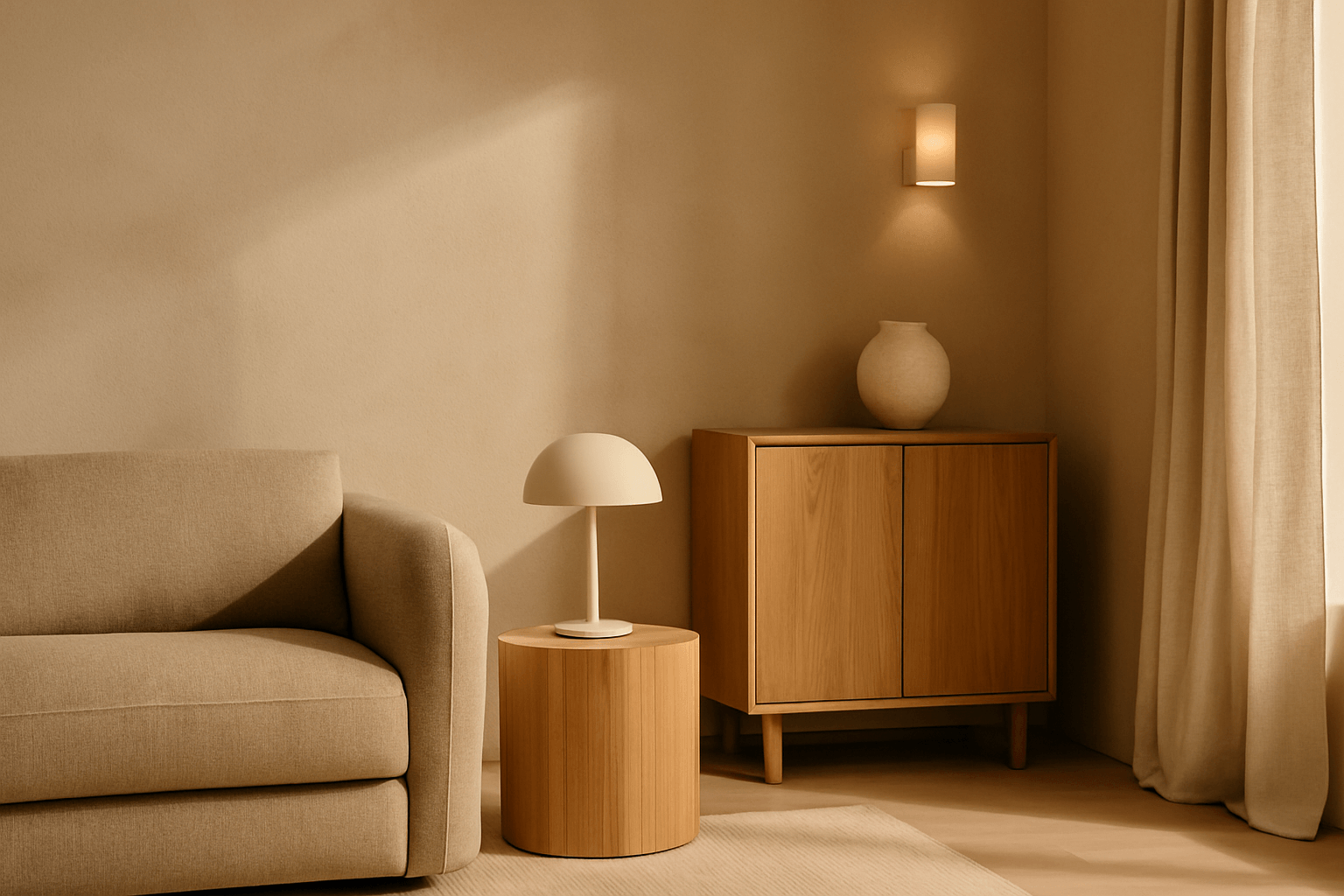A Home That Supports You to Slow Down
In a world of urgency, fast content, and constant noise, the idea of a slow home offers something rare — an invitation to rest.
Slow living isn’t just a philosophy. It’s a way of designing your space to support:
-
Stillness
-
Restoration
-
Presence
A slow home doesn’t rush you. It holds space for you.
1. What Is a Slow Home?
A slow home is designed for calm interaction.
It prioritizes:
-
Comfort over display
-
Function with beauty
-
Materials that invite touch and ease
It’s not about how much you own. It’s about how your space makes you feel.
2. Materials That Ground You
In a slow home, materials matter deeply:
-
Natural wood with visible grain
-
Stone and clay with tactile imperfections
-
Linen, wool, and other soft, breathable fabrics
These textures connect you to nature — even in quiet, urban interiors.
3. Lighting for Rhythm, Not Performance
Lighting in a slow home is designed to:
-
Shift with the time of day
-
Support soft transitions (morning to evening)
-
Offer layered glow rather than harsh brightness
Table lamps, sconces, and natural daylight shape mood gently.
4. Flowing, Breathable Layouts
A slow home allows:
-
Open circulation
-
Breathing room between objects
-
Flexibility in use (reading nook today, meditative space tomorrow)
Design for flow, not static perfection.
5. Rest as a Design Principle
Rest isn’t just a function of bedrooms.
Slow homes create micro-moments of rest:
-
A simple chair by a window
-
A reading corner with soft light
-
Clear surfaces that offer visual pause
Every area becomes a small invitation to slow down.
Final Thought
A slow home is a place to come back to yourself.
Through thoughtful design, natural materials, and space that breathes, your home can support the rhythms of rest and presence.
Less urgency. More ease.
That’s the beauty of the slow home.
















